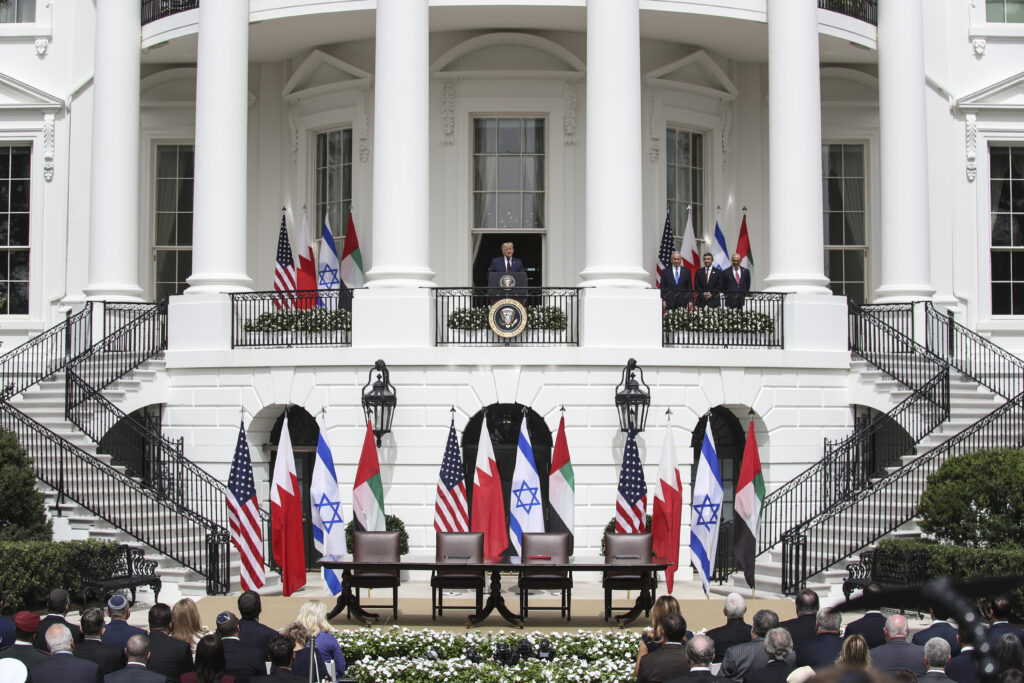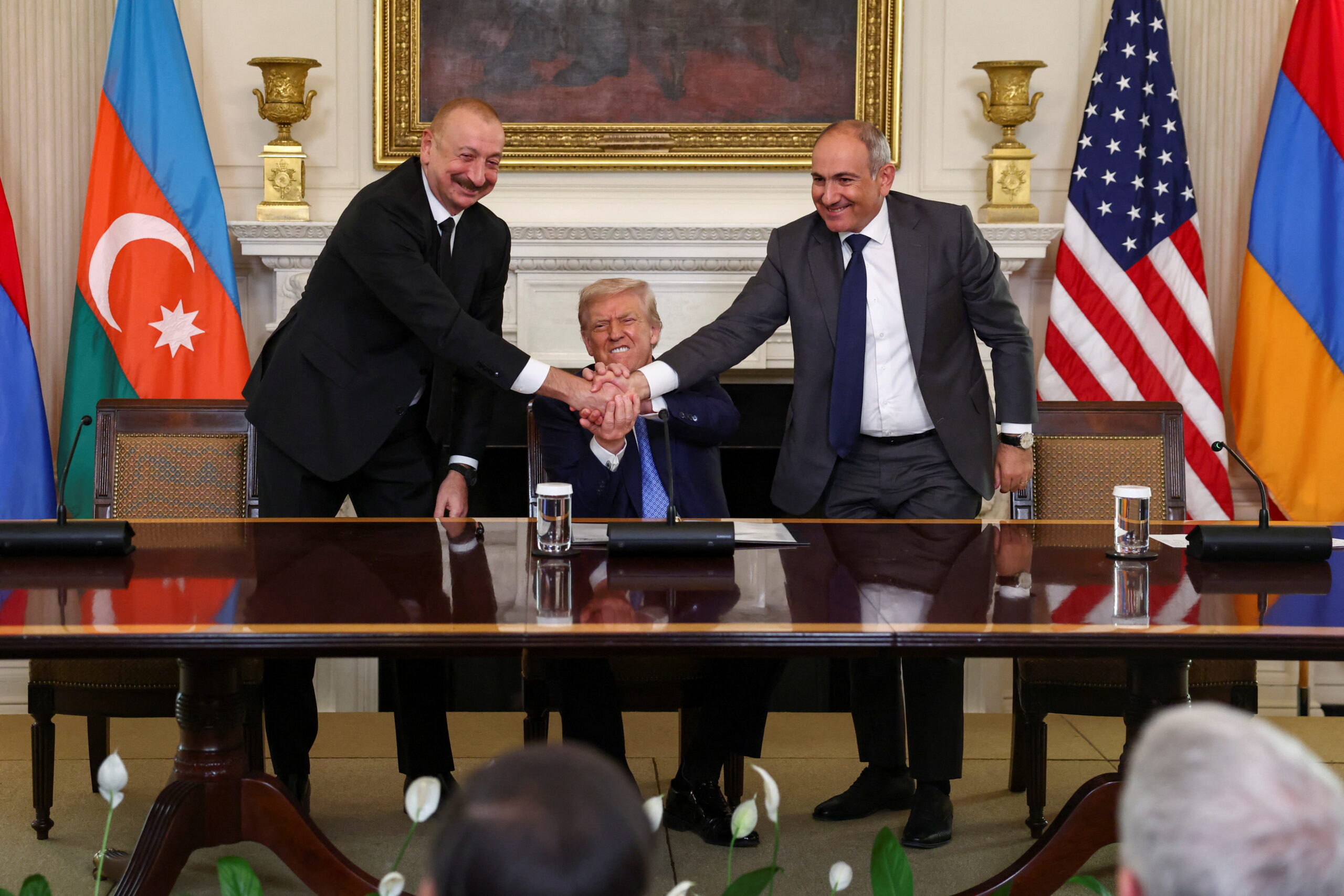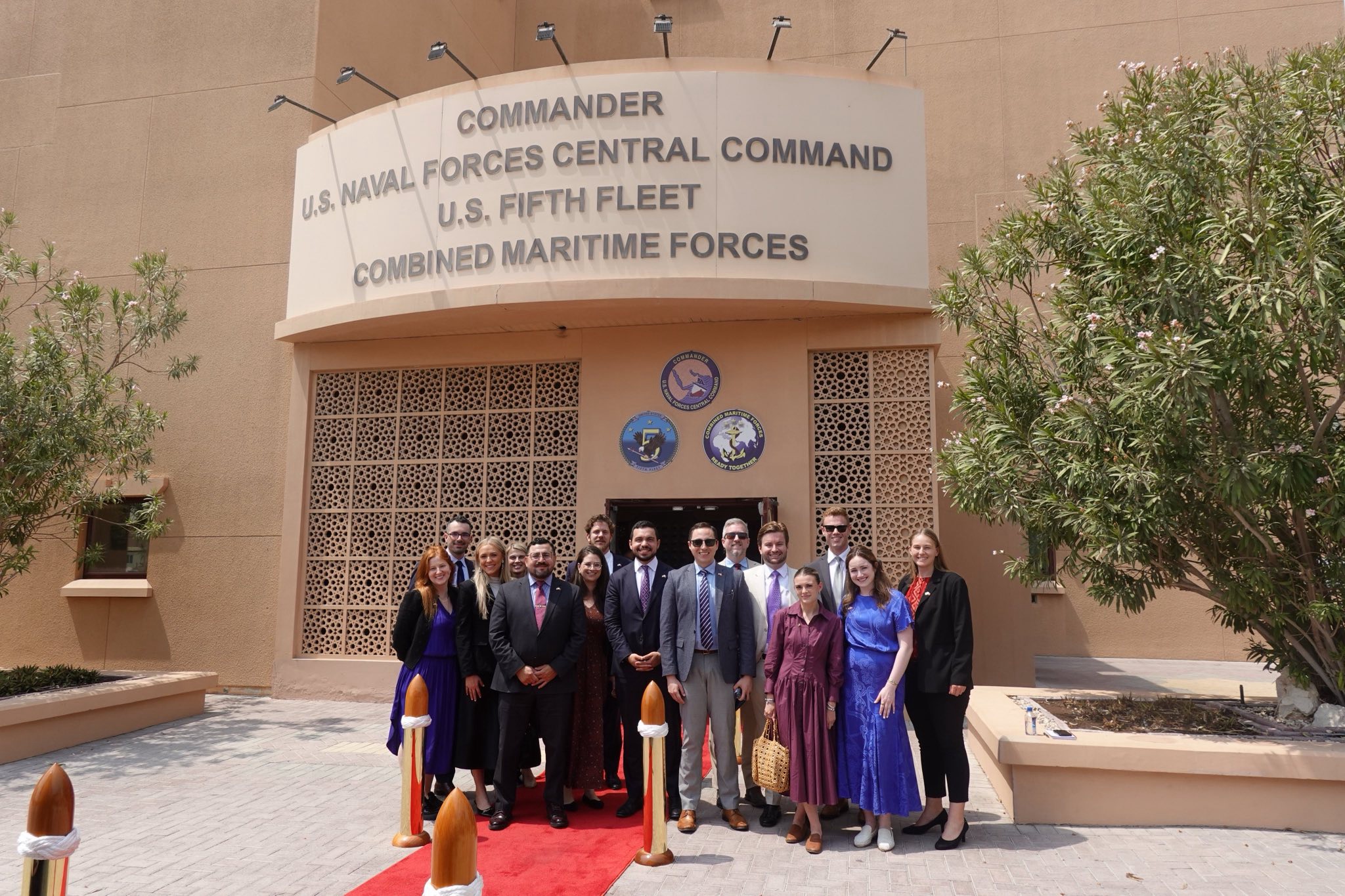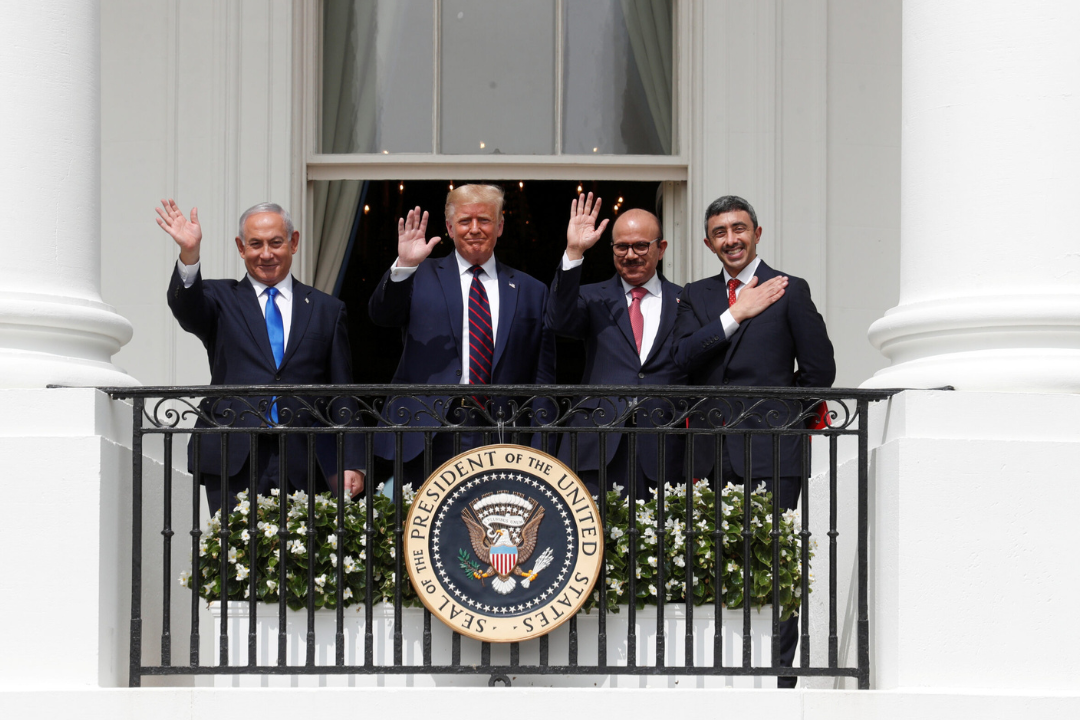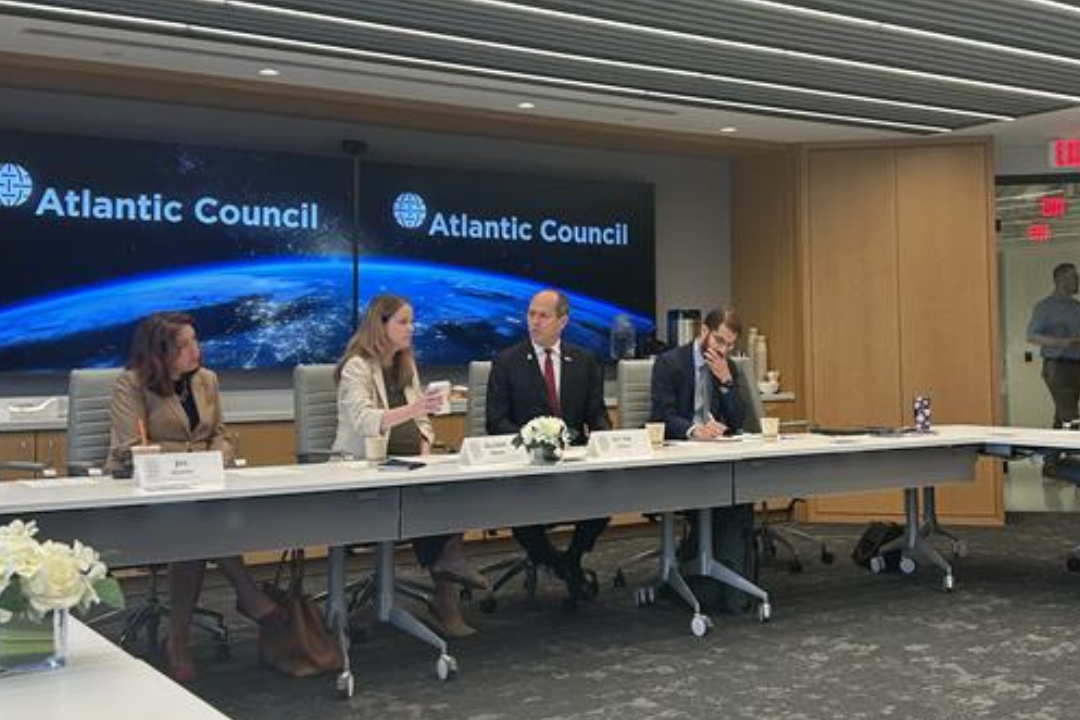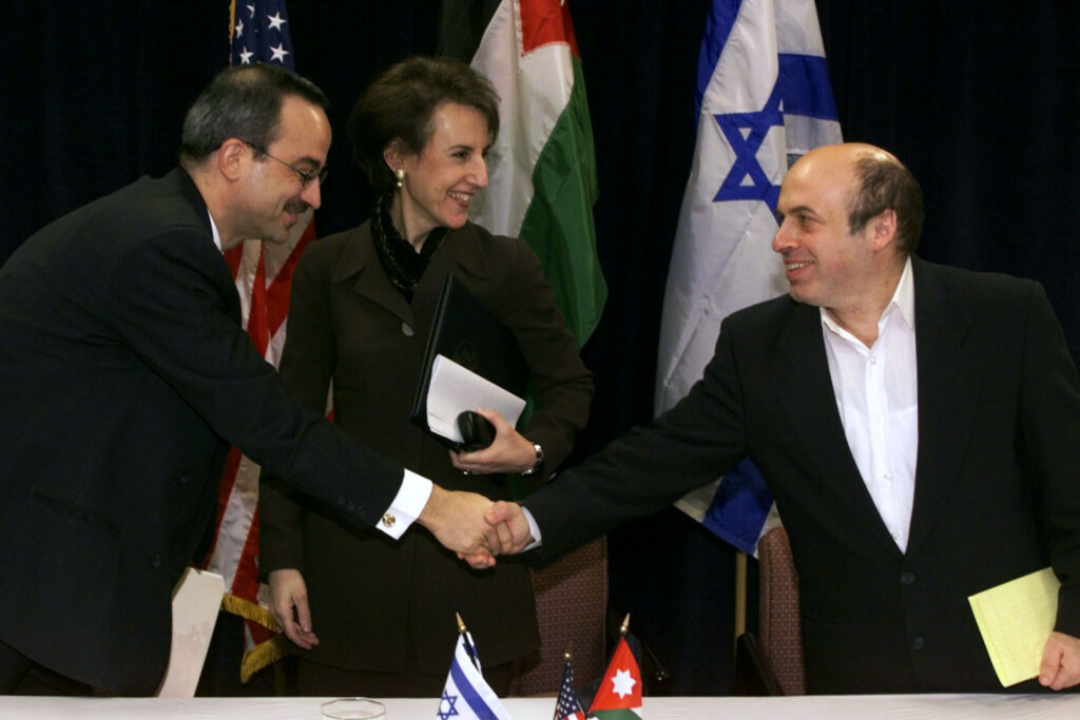At a time when the headlines regularly announce violence in Gaza and Houthi attacks on Israel, it may seem incongruous to speak of the Abraham Accords. But navigating out of the Middle East’s continued turmoil demands a clear, realistic vision of where the United States wants the Middle East to end up. There are powerful trends across the region—from the United Arab Emirates (UAE), to Syria, to Morocco—favoring cooperation and dialogue among former foes and rivals, rather than confrontation. The conflict in Gaza will delay some of these trends and pose a threat to regional stability as long as the war continues and a more durable solution remains elusive. But there is clear momentum for change in a region weary of war and following a decade of US intent to downsize its military engagement in the Middle East.
The Abraham Accords—one of the signature foreign policy accomplishments of the first Trump administration—provide a valuable platform for harnessing these trends. But to achieve a more stable and prosperous Middle East consistent with the vision US President Donald Trump recently outlined in Riyadh, the accords must be adapted and strengthened. The United States and its partners cannot simply wait for the war in Gaza to end or for Saudi Arabia to normalize relations with Israel. They must take steps now to strengthen the accords in order for them to provide an effective path forward for the Middle East.
Where to start?
First, to deliver strategic benefits for both the region and the United States, accords countries must go beyond normalizing relations with Israel. They should build on normalization to actively commit to core principles related to religious tolerance, broad-based economic growth, and a forward-looking approach to tackling shared challenges in cooperation with the United States.
Second, those principles should be operationalized through a flexible mini-lateral structure that transforms the accords from a loose label into an effective network of countries spanning the Middle East and neighboring regions. This structure could learn from the successes and challenges of the Negev Forum launched under then US President Joe Biden in 2022. To succeed, this new mini-lateral forum must help identify meaningful, broad-based areas of cooperation that regularly bring together senior officials from participating countries even as political differences between some of those countries persist. In this regard, the Association of Southeast Asian Nations, or ASEAN, is a useful model, as argued previously by the Atlantic Council’s Dan Shapiro.
At the same time, the accords countries must avoid a cumbersome bureaucratic structure that creates work without delivering results and is not conducive to the private-sector engagement that should remain central to the accords network. Moreover, this structure should seek to coordinate with civil society actors—universities, hospitals, and nongovernmental organizations—that can help build people-to-people ties across countries and cooperation from the ground up. Given enough time, this network might even provide functions ranging from a voting bloc in the United Nations to an economic corridor, building on promising initiatives such as the proposed India–Middle East–Europe Economic Corridor (IMEC).
Third, countries in the Middle East—particularly Israel—must take a greater leadership role in operationalizing that network and ensuring that new members see tangible benefits. For instance, Israel could be much more active in sharing technological expertise, financing, and building partnerships that continue to strengthen relations long after the signing of an accord document. Reviving the Abraham Accords Caucus in the Knesset could help facilitate such leadership. The UAE, which has been a consistent champion of the accords, should continue its outreach, leveraging its leadership in strategic sectors such as emerging technology, food security, and renewable energy. For its part, the United States can and should provide strong diplomatic support for the accords. Yet, as Trump made clear in Riyadh, the momentum must come from the Middle East itself.
Early returns: How the accords are already delivering strategic benefits
An important reason to double down on the accords now is that they are already delivering meaningful results toward a more stable Middle East. Advocates of the accords often use increased trade as a metric of success, but the strategic benefits, while harder to measure, are more significant. For example, the UAE is currently leveraging its growing partnership with Israel to mediate between Jerusalem and the new government in Syria, helping to avert a major military confrontation in the Middle East whose consequences could reverberate for decades. Such talks are only possible because of the trust Emirati and Israeli officials have built over the past five years, constructing lines of communication across what previously seemed like insurmountable divides. Moreover, the fact that Arab partners helped shoot down Iranian drones and missiles launched against Israel in April 2024 demonstrates the willingness of those partners to take steps previously considered unthinkable to prevent military escalation in the region.
The Abraham Accords have also revived or enabled economic connectivity projects that better leverage the Middle East’s role as a link between Asia and Europe. Continued success in this area through initiatives such as IMEC could benefit the global economic landscape while expanding economic opportunity for Middle Eastern countries. For the United States, such projects provide an alternative to China’s Belt and Road Initiative and help reduce opportunities for Chinese exploitation in the region. As a result, the accords reinforce US economic leadership in the Middle East—and they should continue to, especially in critical sectors such as artificial intelligence and emerging technology, where Gulf countries are increasingly asserting a major role.
What comes next
Many in the US foreign policy community assume the Abraham Accords are on pause until Saudi Arabia joins the accords. This is a dangerous assumption that risks jeopardizing the potential of the accords to deliver transformative change for the region. It’s true that Saudi Arabia is unlikely to formally normalize relations with Israel in the immediate term: Saudi officials have stressed the need not just for an end to the war in Gaza but also consensus on a credible path to a Palestinian state, and the current political realities of the region make this extremely difficult. Nonetheless, there is significant work that can and should be done to reinforce the existing accords and lay the groundwork for their meaningful expansion to other countries.
The Trump administration should build on the accomplishments of Trump’s first term by working with US partners to revive a regionally led mini-lateral forum for the accords based on clearly articulated principles. The United States and its partners should use this forum to advance tangible initiatives that strengthen collaboration between both existing and prospective accords countries so that when the accords are expanded, they are building on a solid foundation. This should include Muslim-majority countries in areas neighboring the Middle East that have natural economic, political, and security ties with the region and thus can play a meaningful role in promoting stability and prosperity. In doing so, the Trump administration should reassure its partners that the US vision for the Abraham Accords is premised on the assumption that the Palestinian issue must be resolved in a manner that is acceptable to moderate Palestinians. Doing so is essential not just to secure Saudi Arabia’s eventual participation in the accords, but to resolve a persistent threat to the Trump administration’s vision for a more stable and prosperous Middle East.
Only if this work is done now will the United States and its partners be prepared to seize the potential the accords provide for greater regional change after the war in Gaza comes to a close.
Allison Minor is the director of the N7 Initiative, a partnership between the Jeffrey M. Talpins Foundation and the Atlantic Council. She previously served as the deputy US special envoy for Yemen and the director for the Arabian Peninsula at the US National Security Council.

